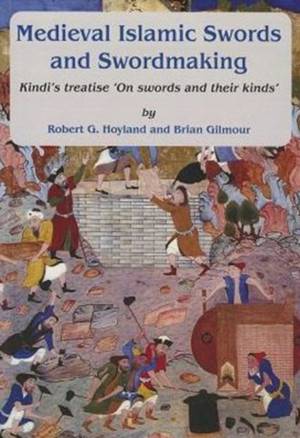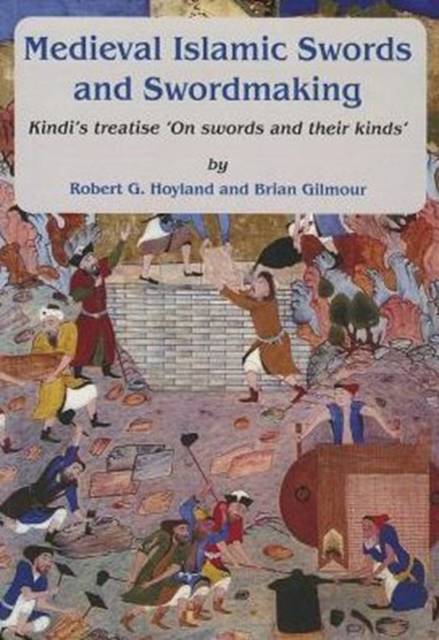
Je cadeautjes zeker op tijd in huis hebben voor de feestdagen? Kom langs in onze winkels en vind het perfecte geschenk!
- Afhalen na 1 uur in een winkel met voorraad
- Gratis thuislevering in België vanaf € 30
- Ruim aanbod met 7 miljoen producten
Je cadeautjes zeker op tijd in huis hebben voor de feestdagen? Kom langs in onze winkels en vind het perfecte geschenk!
- Afhalen na 1 uur in een winkel met voorraad
- Gratis thuislevering in België vanaf € 30
- Ruim aanbod met 7 miljoen producten
Zoeken
Medieval Islamic Swords and Swordmaking
Kindi's Treatise "On Swords and Their Kinds"
Robert G Hoyland, Brian Gilmour
€ 45,45
+ 90 punten
Omschrijving
One of the problems pervading the study of medieval Islamic technology is the lack of surviving technical treatises. Tradition tended to be handed down by example and by word of mouth, and apprenticeships could last for decades. Fortunately, however, occasional treatises do exist. The treatise "On swords and their kinds" was written by the 9th century Muslim philosopher Ya'qub ibn Ishaq al-Kindi. This work was commissioned by a powerful patron of scholarship, the Abbasid caliph Mu'tasim, and the content of the treatise presumably reflects the ruler's general interest in his army and its equipment, and his specific interest in the technical aspects of sword production. In this work, Kindi discusses the difference between iron and steel, distinguishes different qualities of sword blade, and different centres of swordsmithing. He refers to the Indian Ocean trade in steel ingots and to the distinctive character of European swords of the period. He includes technical terms used by the makers, and distinguishes swords by their physical features - form, measurements, weight, watered pattern, sculptured details, or inlaid ornaments. This publication includes the text and a translation of Kindi's treatise, and a detailed commentary on the work. The volume also includes a translation of Friedrich Schwarzlose's work on swords, which is based on the hundreds of references to swords in early Arabic poetry. Written in German, this extraordinary compendium of information was first published some 120 years ago; this volume makes it available again, and for the first time in English.
Specificaties
Betrokkenen
- Auteur(s):
- Uitgeverij:
Inhoud
- Aantal bladzijden:
- 216
- Taal:
- Engels
- Reeks:
Eigenschappen
- Productcode (EAN):
- 9780906094570
- Verschijningsdatum:
- 30/05/2012
- Uitvoering:
- Paperback
- Formaat:
- Trade paperback (VS)
- Afmetingen:
- 170 mm x 241 mm
- Gewicht:
- 621 g

Alleen bij Standaard Boekhandel
+ 90 punten op je klantenkaart van Standaard Boekhandel
Beoordelingen
We publiceren alleen reviews die voldoen aan de voorwaarden voor reviews. Bekijk onze voorwaarden voor reviews.









